The NFL's return to Detroit after 18 years revives interest in unsolved Super Bowl murder
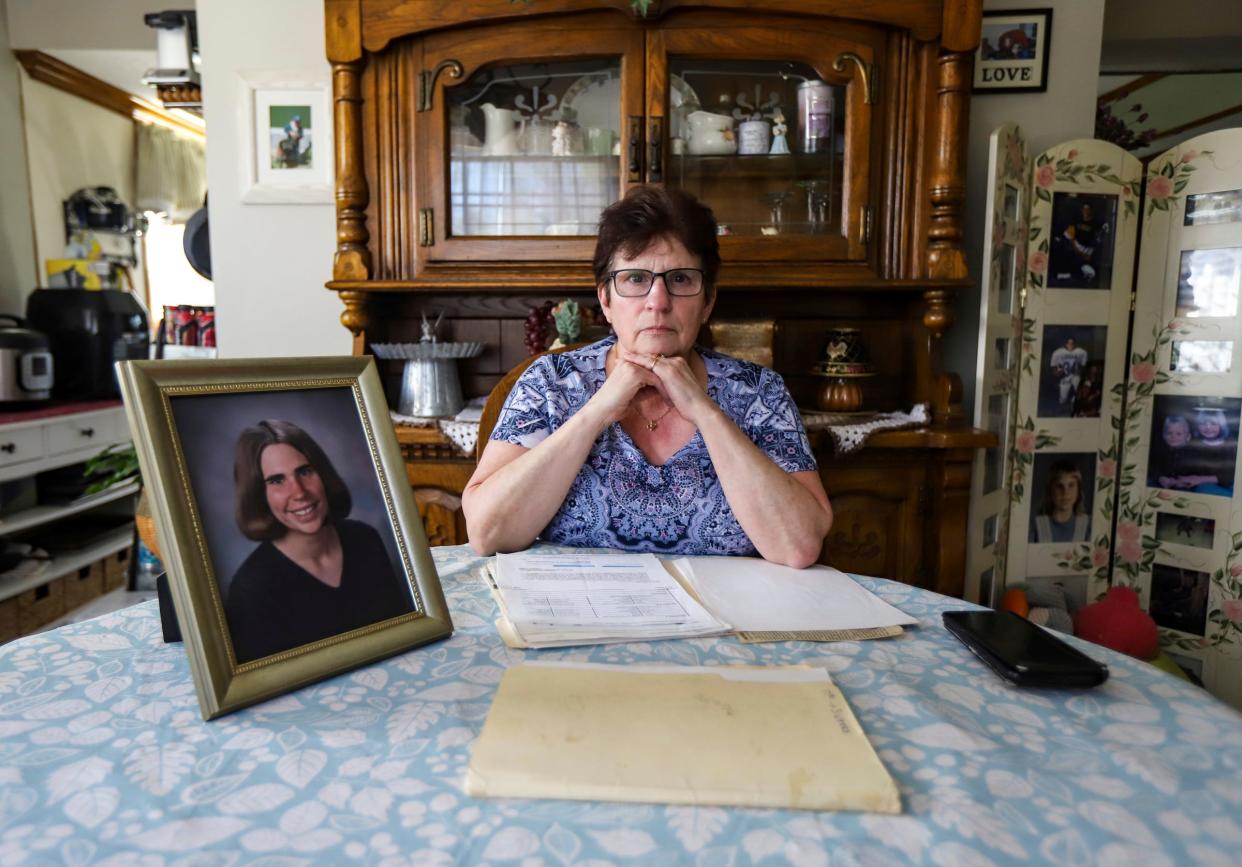
Kyle Smith was no angel, but she had been working hard to earn her wings when time ran out on Woodward Avenue the night before Super Bowl XL.
Smith and her friends were among tens of thousands of locals and tourists who reveled at the Winter Blast 18 years ago, one of the many downtown events created to support the NFL's championship game and help rehabilitate Detroit's image. By 1:30 a.m. on Saturday, Feb. 4, 2006, Smith and a friend were waiting in the bitter cold outside the Good Life Lounge when, after a minor altercation, a stranger shot them. Smith died hours later in a Detroit hospital. Her friend, hit while shielding Smith's body as she lay on the ground, survived.
Five hours after the shooting, Lenawee County Sheriff's deputies broke the terrible news to Smith's mother at her home in Tecumseh.
"My husband just said I screamed and he said it was the worst scream he ever heard," Vicky Cupp told me recently. "I was a bawling mess."
There's never a good time for a murder, but Smith's death came at an especially inopportune time for Detroit.
Abandoned buildings plagued downtown and the neighborhoods. Time magazine had recently named Kwame Kilpatrick one of the worst mayors in America. Civic leaders, foundation executives and CEOs saw the Super Bowl as "a tipping point for changing the conversation about Detroit," as the director of the Super Bowl host committee reflected a decade later.
More than $100 million was earmarked to spruce up building facades, improve infrastructure and install new sidewalks, landscaping and streetlights. Conversion of old office buildings into apartments, lofts and condos was underway, but local burghers saw the Super Bowl as a catalyst that could create a boom in downtown living.
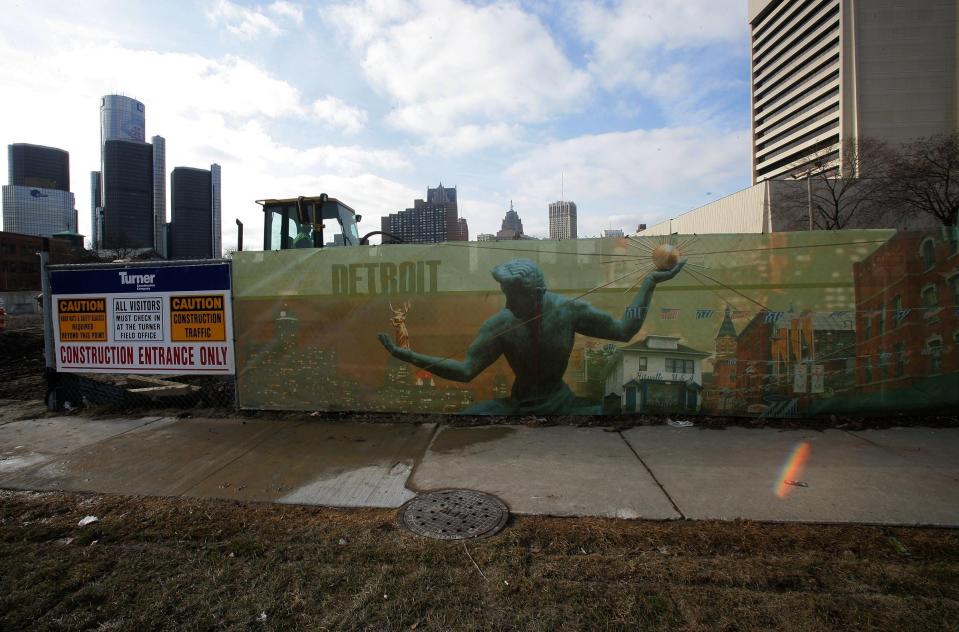
Boosters in 2006 hoped to use the NFL's Big Game — much like current Mayor Mike Duggan hopes to use this week's NFL draft — as an opportunity to introduce the world to a Detroit that is new and better and, above all, safe.
There's no doubt Detroit is better off than it was 18 years ago. Unemployment is down. Thousands of abandoned buildings have been demolished. Downtown is brimming with trendy restaurants, bars and living spaces. The riverfront has been transformed. Many city parks have never looked better.
But one thing has not changed: Smith's family is still waiting for someone to be held responsible for the murder of the 24-year-old country girl who moved to the big city.
Smith's time here was tumultuous and triumphant. She became addicted to drugs, got caught up in one of the most notorious police corruption cases in recent Detroit history, kicked her habit, and chaperoned family and friends as they enjoyed the city's attractions and sporting events. Under pressure to solve the high-profile homicide, Detroit police struggled with unreliable witnesses and a suspect with an unshakable alibi. Two years after Smith's death, a police spokesman declared that her killing was "not a cold case by any means," rather a case of "delayed arrest."
If so, the "delay" has lasted more than 18 years, causing Smith's family to fear that her murder got swept under the red carpet Detroit rolled out for the NFL.
From Tecumseh to Trolley Plaza
Kyle Rae Smith, Class of 2000, is the reason Tecumseh High dropped flag football.
"If Kyle had a grudge with somebody, she took it out on the girl in football," Cupp recalled. "And that didn't work out so good. So they didn't have girls football in Tecumseh after that."
The youngest of Cupp's three daughters was a tomboy who wrestled boys; a talented softball player who threw so hard that other girls didn't want to get in the batter's box when she was pitching; and blessed with so much personality she could have been a stand-up comedian ... unless you crossed her.
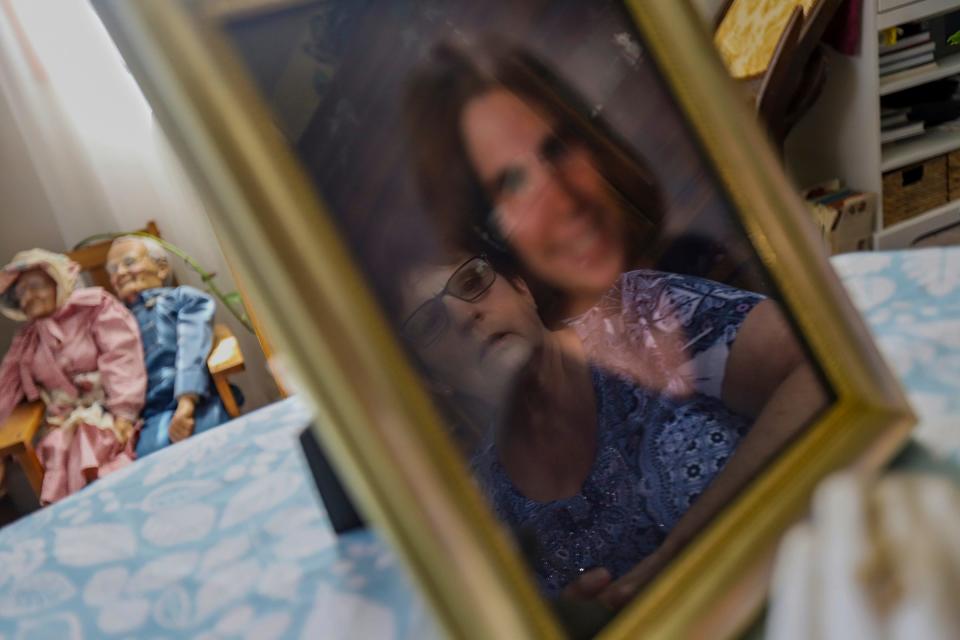
"If she liked somebody, she'd do anything for them," Cupp said. "But if you were on her bad side ... it wasn't good at all."
Cupp said her daughter wanted to be a lawyer, but didn't take to college. Coming from a family that earned its living from trucking, Smith started a career in that industry. Changing companies allowed her to move from her home situated between Lake Erie and the Ohio border to Detroit.
"They were always going out on Sundays and having a good meal somewhere," Cupp said. "She loved Detroit. She loved everything about it."
But Cupp said the high school friend who introduced Smith to Detroit also turned her on to something else she would find in the city — heroin.
Cupp said she became so concerned about her baby girl that some days after she finished work in Woodhaven she would head to Detroit to look for Smith.
"I would sneak up there every so often," Cupp said. "I was in them dope houses looking for her."
She recalled one time she found Smith down on her luck.
'She said, 'Can I just get $20 to buy some food and some gas?' " Cupp said. "That was the last time she got money off me."
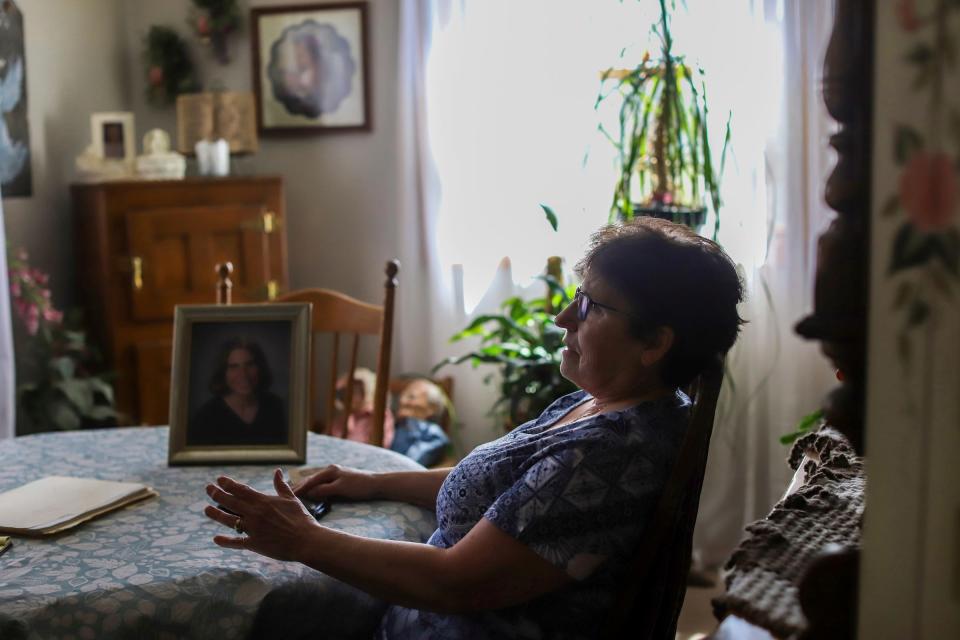
Smith's days in a daze included at least two encounters with William Melendez, a controversial former Detroit police officer known as "Robocop."
Melendez was one of 17 cops indicted in 2003 on a charge of violating people's civil rights. The feds called the crew who worked in southwest Detroit "rogue cops" and accused them of dangling a man by his legs from a second-story window, as well as threatening to kill a woman if she told anyone how they treated her. Prosecutors said another woman lost a tooth after the cops stepped on her face. They also accused the officers of planting evidence and falsifying police reports.
Smith testified against Robocop in federal court.
Cupp shared notes with me that she said her daughter wrote detailing her interactions with Melendez. One page says that on Aug. 26, 2002, Smith was pulled over for no reason, handcuffed and stuffed in the back of her 1995 Geo Tracker. Smith wrote that after the car was searched, Melendez threatened to plant guns and drugs on her if she refused to tell them there were drugs in a home on Hammond.
A second page says that on Sept. 8 or 15 (presumably in 2002, though no year is given), Smith was at the home on Hammond when police kicked in the door and "began to search and destroy" the home. She wrote that Melendez took her in a back room and said "drop 'em." Smith doesn't detail what happened next, but Cupp said her daughter told her Melendez performed a cavity search.
The notes say: "After making sure I had no drugs on me, he then began to question me over and over again. I was terrified he was going to plant drugs on me." Smith wrote that Melendez's partner also questioned her. The note concludes: "no drugs were found."
A jury did not convict the officers. Melendez beat all of the 25 charges against him, his attorney David Lee told me Friday. Even 21 years after the case concluded, Lee vividly remembered cross-examining Smith on the witness stand. He said her death was a horrible tragedy and expressed condolences to her family. Of her allegations against Melendez, Lee said: "She was completely discredited at trial."
(Twelve years later, in 2015, a Wayne County jury convicted Melendez of misconduct in office and assault with intent to do great bodily harm less than murder after he was caught on camera in Inkster, where he was working as a police officer, punching a motorist 16 times during a traffic stop.)
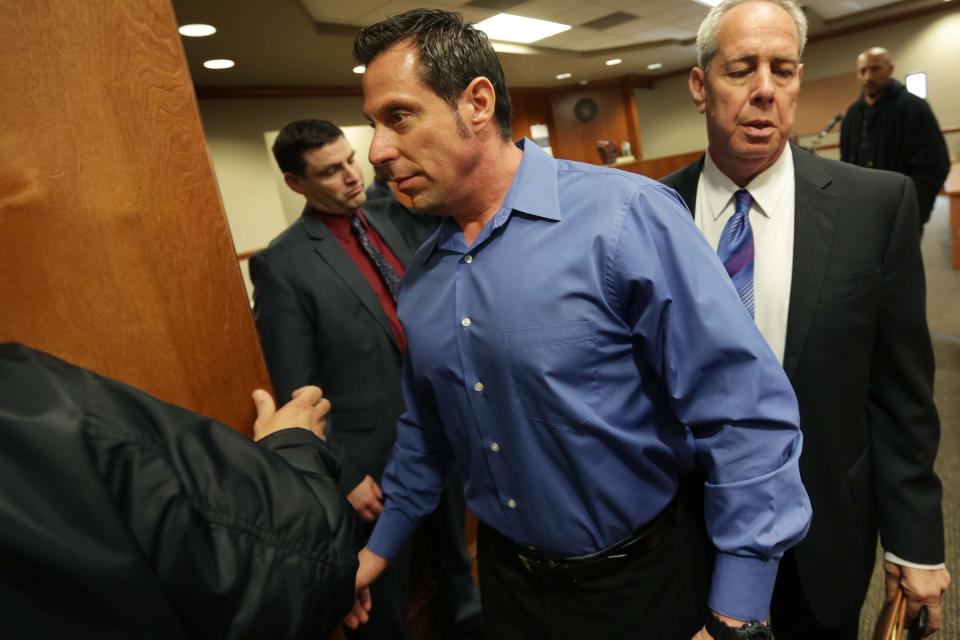
Cupp said Smith kicked her habit around 2003.
"She had a friend, who was a drug dealer at one time, who turned his life to God," she said, adding that her daughter went to church and got baptized.
Smith still had concerns about her past, however. She moved into the then-named Trolley Plaza apartments on Washington Boulevard because it offered security services.
"She was worried about Robo," Cupp said of her daughter's fear of retaliation from Melendez, adding that her daughter slept with a sawed-off shotgun under her mattress.
Still, Smith's sister, Carrie Jimenez, said she loved the city and had a panoramic photo of Detroit in her apartment. Jimenez's sons had sleepovers at Smith's apartment, and she took them to meet Pudge Rodriguez of the Detroit Tigers and to car shows.
"We thought she was in the clear," Jimenez said, "because she survived the streets."
Nightmare on Woodward
The eyes of the world would be on Detroit during Super Bowl, XL, which was one reason police began preparing a year before the big game came to town.
"It was definitely the mood at the time that you wanted to have Detroit show up in the best possible light," said Craig Schwartz, a former deputy Detroit police chief who worked with federal law enforcement agencies to keep the city safe during the Super Bowl festivities. "You tried to cover all of the potentialities that might occur."
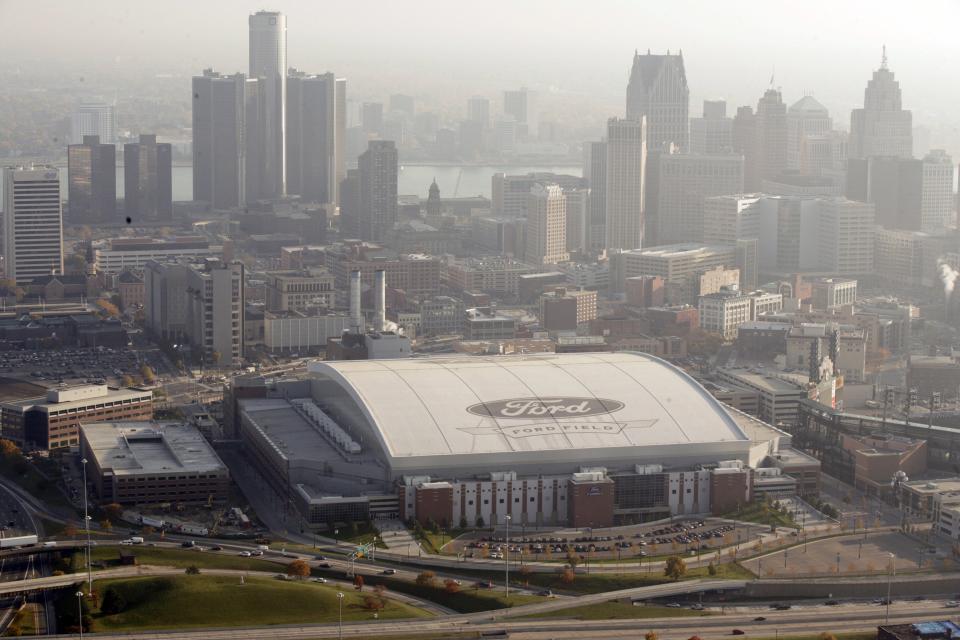
But, as Schwartz pointed out, "you can never prevent everything."
One day before the big game, Smith proved that point with her life. My former Free Press colleague Joe Swickard wrote in 2007 that Smith was "in the crowds packing Woodward Avenue when she bumped shoulders with a young man.
"Smith was knocked to the pavement. There were shouts, then shots and then death on a cold sidewalk surrounded by strangers."
Police circulated a sketch of a potential suspect, but it was not especially distinctive. Unlike today, when seemingly every square inch of the Central Business District is covered by cameras producing high-quality, high-definition video even in low light, there was no footage available from local businesses back then. A retired Detroit police investigator who worked on the case told me last week that witnesses were drunk, argumentative, difficult to work with and "didn't seem to want to be involved." A couple of them were from out of state and weren't very helpful.
My source said police assigned so many different units to work on the case — Special Assignment Squad, Violent Crimes, Homicide — that it may have made it more difficult to advance the investigation, because each unit had different styles and may not have coordinated efforts or communicated as well as a single unit may have.
Schwartz said there was pressure to solve the case quickly.
"Certainly, they wanted us to bring it to a close as soon as possible," he recalled.
My source said police received a tip that a guy who worked in an auto plant was responsible. His timecards said he was at work when Smith was shot. Police asked the suspect's colleagues whether they could confirm his whereabouts. My source said they seemed sketchy, but were ultimately unhelpful.
"They couldn't break the alibi," my source said. "They couldn't prove he wasn't there."
Cupp said police gave her the name of a suspect, but they didn't tell her much more. She looked him up on the state's prisoner information system and found that he committed home invasion two months after her daughter's death, and pleaded no contest to home invasion and committing a crime with a gun more than 18 months after Smith's death.
Jimenez said her mom met with police in Detroit shortly after Smith was killed. The trip underscored the challenges ahead.
"They seemed like they cared," Jimenez said. "But as you're talking to them, there were 80 other calls coming in about people that were murdered."
"After the media stopped talking about it, we didn't hear anything about it again."
Two years after Smith's death, Detroit News columnist Laura Berman asked then-police spokesman James Tate about the case. He's the guy who said it wasn't a cold case but a case of "delayed arrest."
I've known police my whole life and, in more than 35 years of reporting on police matters, I've never heard that term before. When I called Tate, who is now the president pro-tem of the Detroit City Council, for clarification, I was referred to Tate's communications specialist. Five days after I first spoke with Tate's communications specialist, the councilman officially declined to comment.
When I asked a high-ranking Detroit police official last week what "delayed arrest" might mean, I was told: "That's not a term that I'm acquainted with in law enforcement."
Delayed justice
City officials aren't happy that I am writing about Smith's death, which occurred about 100 yards from the giant clock installed in Campus Martius to count down to the NFL's return for its annual draft of college football players. Safety has long been a concern of visitors to Detroit. And a fatal shooting earlier this year during the Super Bowl victory celebration in Kansas City underscores the danger people in big crowds face, even during the happiest of times, when an idiot with a gun and a grudge starts popping off shots.
But for Smith's family — and the families of every crime victim — there's never a bad time to remind police and politicians that we need their help to bring the guilty to justice. The passage of time can also help solve a case.
"Things can happen years and decades later," said Schwartz, the former deputy police chief. "A girlfriend might come in at some point, or a wife after a divorce, and say 'Hey, I've got this information on a crime that occurred.'
"You never know," he added. "Things like that happen. The book's never closed on an open case."
I asked police brass if I could review the file on Smith's murder which, I admit, is a tall order.
Instead, they connected me with Cmdr. Ian Severy of Major Crimes. He confirmed that the case is with the cold case squad and assured me that "each and every tip that came in was run thoroughly and investigated very thoroughly."
Severy wouldn't give me a date when I asked for the latest entry in the case file, but he said: "We are actively reviewing all evidence and statements ... looking for opportunities to utilize new technology where we can."
He didn't offer many specifics, but said DPD will resubmit the bullet to the National Integrated Ballistics Network. That's a database matching bullets to crimes. So, if the gun used to shoot Smith and her friend was used in another incident, it could generate new leads.
Severy said he reviewed the case file and told me: "I see some opportunities that we can further expound on."
Again, he was light on specifics, but offered: "One of our next steps will be to reinterview a number of people that we were able to interview during the initial investigation."
"We do care about every case, and we would love to bring this closure to the family that they deserve," Severy said, asking anyone with information on Smith's murder to call Detroit police homicide at 313-596-2260 or Crimestoppers at 800-SPEAKUP.
If you or someone you know can help, but are hesitant because of the perverse and pernicious "no snitch" dictum that allows criminals to creep while families weep, consider Smith's legacy.
She died on the day her nephew celebrated his 3rd birthday, but today he attends Wayne State University, just a short jog from the Trolley Plaza apartment where she hosted his first sleepover. His older brother put a photo of Smith on a chair during his marriage celebration and, while walking down the aisle, choked up when he looked over at the image of the aunt taken from him when he was only 12.
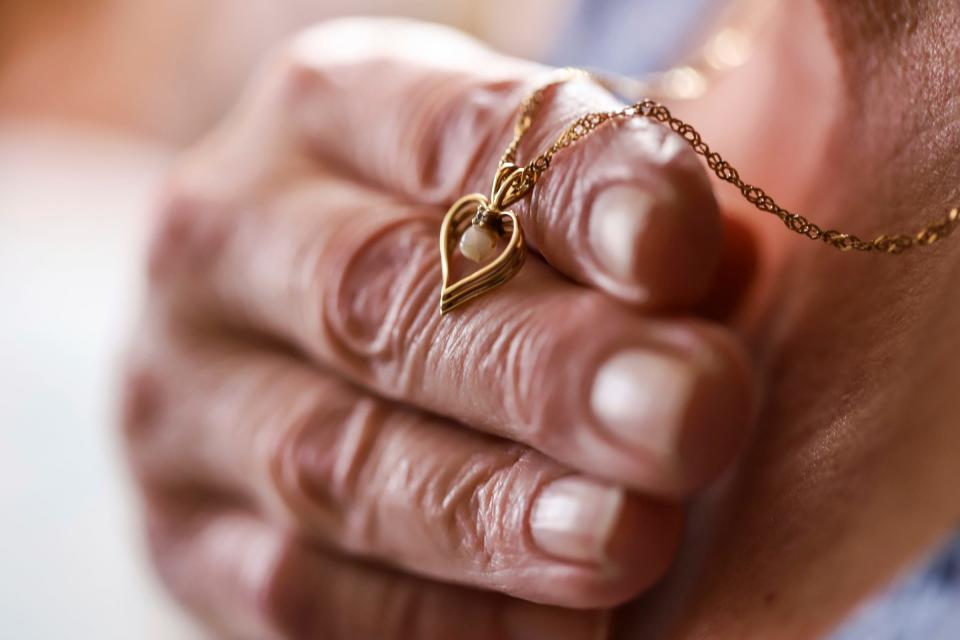
Detroit police statistics suggest that our city is safer than it was the last time the NFL was here. In 2006, there were 411 homicides. Of those, 215 were closed, for a rate of 52%. In 2023, there were 252 homicides. Of those, 128 were closed, for a rate of 51%. Even with Detroit's loss of population, that seems like progress, with one major exception: Nearly half of the city's murders still aren't getting solved.
Jimenez wasn't surprised to hear from me last week. With the NFL returning to Detroit for the first time since her sister's death, she suspected a reporter might call. Her emotions during our conversation ranged from anger to anguish. Jimenez doesn't believe her family deserves justice more than any other family. She wants every murder solved.
And she doesn't care whether the spectre of her sister's death casts a shadow over the NFL draft celebrations.
"We have every right to still want it to be solved," Jimenez said. "They can get mad about it if they want. But it happened."
M.L. Elrick is a Pulitzer Prize- and Emmy Award-winning investigative reporter and host of the ML's Soul of Detroit podcast. Contact him at mlelrick@freepress.com or follow him on X at @elrick, Faceook at ML Elrick and Instagram at ml_elrick.
This article originally appeared on Detroit Free Press: The NFL is back, but Detroit's Super Bowl murder is still unsolved

